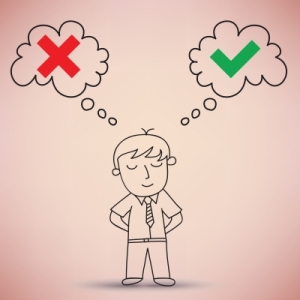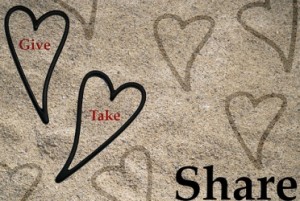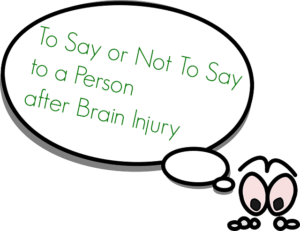
Having a strong ethical framework for brain injury supporters to work from, can help you manage ethical dilemmas as they arise – and they do.
Often dilemmas happen with little or no time to sit and think about it, or time to call in the experts. It is rarely as easy as ‘Right or Wrong’ and each dilemma is likely to be different.
How do you develop your own process for making ethical decisions and choices? Today a look at developing an ethical framework for brain injury support.
ETHICAL DILEMMA AND ETHICAL FRAMEWORK FOR BRAIN INJURY
Mostly we don’t think about any of this. Well, not until we are slap bang up against an ethical dilemma. So today it’s not so much a ‘how to’. It’s more a start here, and keep working on it. Here is a couple of examples to get you thinking:
Joe is not able to move about without help. He has cognitive difficulties, as a result of alcohol related brain injury. You visit him each week to do his shopping. You have been told by a neighbour, that Joe was ‘an alcoholic’ and only stopped drinking when he could no longer purchase alcohol himself. The shopping list you get from Joe lists “1 bottle of whisky”. Joe states it is for a friend.
Mary has physical and cognitive difficulties following a stroke. You are employed as a home care assistant for Mary, one day Mary asks you to mind her two young children while she goes out for coffee with a friend. This is not permitted within your role but you know Mary has very little opportunity to go out. You also know Mary becomes frustrated and angry very quickly if you say “no” and are not comfortable managing this.
What would you do in each situation? What principles, values, rules, beliefs do you rely on? How do you sort out what you believe is the right thing to do?
WHAT MAKES UP AN ETHICAL FRAMEWORK?
Having an ethical framework for brain injury support can help. You could think of it as a bit like scaffolding surrounding a building – it is good to have that protection around you.
You might not always need it but when something happens it will give you a way to work towards and ethical choice.
An ethical framework for brain injury, like scaffolding on a building, needs practice and testing. Is it working? Does it help you make ethical choices?
Your framework would include:
[ordered_list style=”decimal”]
- Being able to recognise a dilemma. Sounds obvious – but in real life it is not always so easy.
- A set of ethical standards or principles to base your thinking and choices on
- Questions to ask yourself and others to help sort through the twists and turns of the dilemma you face.
- A way to work through to a decision when you are faced with a dilemma
- People who can help you talk through things before, during and afterwards. Holding the mirror up to your thinking.
[/ordered_list]
BUILDING AN ETHICAL FRAMEWORK FOR BRAIN INJURY
As we look at each of the steps there are links not specifically about ethical framework for brain injury. They are included here because they have useful points to think about as you build, or review your own ethical framework.
1. Recognising An Ethical Dilemma
If you missed the beginning of this trio of articles – have a look at the last two weeks articles which began with E is for Ethics and Ethical Dilemmas and Ethical Dilemma and Brain Injury.
Hamilton Health Services in Canada has a simple list of factors that might alert you to the fact you are facing an ethical dilemma. I wholeheartedly support the idea of taking notice of the “Yuck factor” – if you feel it’s not OK, it’s probably not .
2. A Set Of Ethical Standards Or Principles
Ethical frameworks are individual to each of us, with some universal principles. “Doing the right thing” and “Treat others, as you would like to be treated” are examples of principles widely held.
As a foundation of an ethical framework for brain injury it is important that you have a set of principles to base your choices and decisions on.
In addition to looking at what you base your decisions on now i, might help to look at what others have to say about the principles, standards and values that underpin an ethical framework:
‘A Framework For Universal Principles of Ethics’ by Larry Colero provides a simple introduction to “good principles” and identifies principles in key areas of ethical decision making including; personal ethics, professional ethics and global ethics.
The 4 tenets used in medical ethics might also be a useful starting point:
NonMalificience – to do no harm. Sounds simple; consider when doing good might also, as an outcome, cause harm.
Benificience – doing what is best. To do the most good, for each person. Equal resources for all
Autonomy – people have the right to control what happens to them, if they are competent to do so, even if a decision may not appear to be in their best interest. Refusing treatment that is deemed to be life saving.
Justice – Fairness. Equal access to care. Being able to justify what you do.
Principles of BioEthics from the University of Washington School of Medicine helps explain each of these 4 tenets (or principles) more fully.
Have a think about the the 4 tenets using the example of Joe above. You might include:
NonMalificence – buying alcohol may do Joe harm.
Benificience – keeping alcohol away from Joe may help him to remain as healthy as possible for as long as possible.
Autonomy – Joe has the right to choose how he lives and what he spends his money on. Joe may have cognitive damage that compromises his decision making.
Justice – Joe has told you he is buying the whisky for a friend.
Even with a set of principles it is still not so easy. One principle can compromise another, as you can see in the few points about Joe. So the framework needs more than a foundation set of standards or principles.
3. Questions To Ask Yourself
The St James Ethics Centre provides an excellent list of questions to get you started as you consider each ethical dilemma:
[unordered_list style=”green-dot”]
- What are the relevant facts?
- Which of my values make these facts significant?
- What assumptions am I making?
- What are the weaknesses in my own position?
- Would I be happy for my actions to be open to public scrutiny?
- Would I be happy if my family knew what I’d done?
- What will doing this do to my character or the character of my organisation?
- What would happen if everybody took this course of action?
- How would I feel if my actions were to impact upon my child or parent?
- Have I really thought through the issues?
- Have I considered the possibility that the ends may not justify the means?
[/unordered_list]
4. An Ethical Decision Making Process
There are many possibilities for developing your ethical decision-making process. It needs to work for you. Here are a few examples that might help your thinking.
St James Ethics Centre Ethical Decision Making identifies steps towards ethical decision including the questions above.
A Framework for Thinking Ethically provided by Santa Clara University gives an introduction to developing a framework including the range of standards one might base decision-making on.
Ethical-issues-in-practice provides a flowchart (see below) of an ethical decision-making process if you prefer diagrams to words, or just want another alternative.

Starting Points. What can you do?
Build and keep strong, your own ethical framework with:
[unordered_list style=”tick”]
- strong foundations (principles, values, beliefs)
- a willingness to examine the assumptions that are behind your thoughts and actions
- the map or steps you will take, to help you with ethical decision making
- honest reviews after each ethical challenge you face.
- an understanding of the kinds of challenges your ethical framework for brain injury might come across
- mentors or a person / people you can discuss your ethical challenges with.
[/unordered_list]
And Finally
Are you ready to challenge yourself a bit more. The following are resources which outline a range of ethical dilemma and ethical framework for brain injury. Challenge your ethical framework and see how you go:
“Ethics of Care: Guiding the Treatment of Dementia in the 21st Century” by Elijah Wolfson, published in the Huffington Post gives an example of the conflict of principles. It involves being with people who have dementia and whether “lying” is sometimes OK.
Ethical Behaviour Intervention for clients with a TBI by Dr Brooke Froud-Cummins, and Professor Malcolm Hopwood. The article gives examples around a common area of ethical dilemma – behaviour, brain injury and appropriate strategies.
“ETHICAL ISSUE: Doing Good: The Pitfalls of Beneficence” is directed towards ‘rehabilitation professionals’ but useful for anyone supporting a person with brain injury. While this article is a bit more complex and technical than those I aim to link to, it does provide some great information about ethics and ‘doing good’. Also about the kinds of ethical dilemma and brain injury that you might come across. So despite my aim to provide simple explanation, I am including it here in the hope it helps build, or at least tests, your ethical framework for brain injury.



Pingback: But You Look Good: Hidden Disability after Brain Injury - Changed Lives, New Journeys